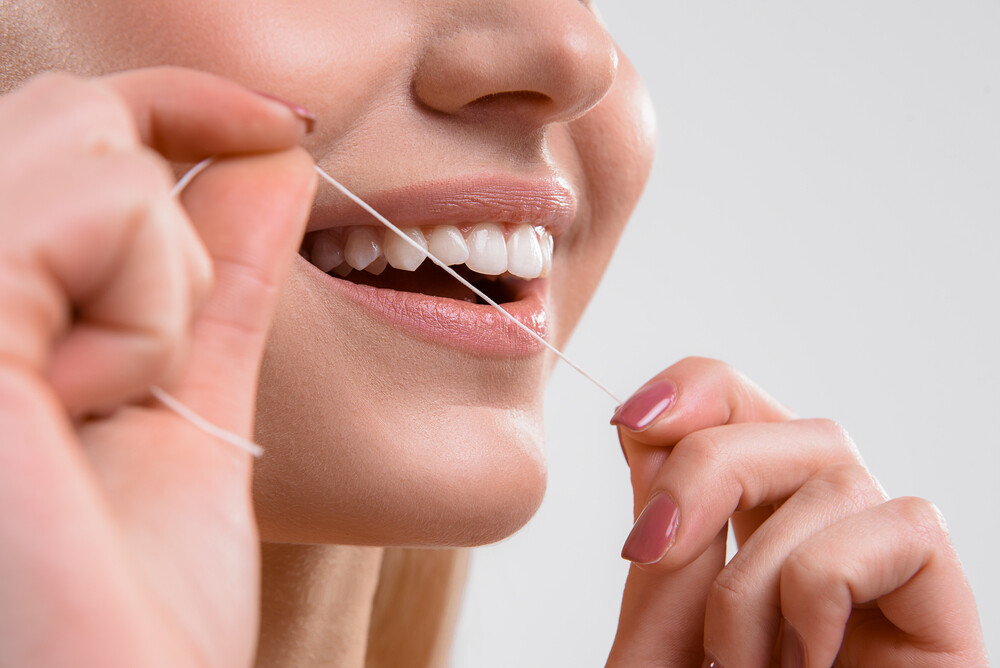Oral hygiene is the be-all and end-all. Unfortunately, many myths surround the topic and cause confusion. Time to get a handle on things.
How many of you regularly floss? Because it’s a step that is often neglected, but brushing the spaces between your teeth is very important. To find out what is really important when flossing, we confronted Panasonic expert Dr. Costin Marinescu with three myths – which he is now eliminating for good.
1. You do not need to floss if you have previously brushed your teeth properly!
Dental floss? Phew, another step in the evening care routine when you just want to fall into bed. Do you have to?
In my 30 years as a dentist, I have never met anyone who brushes their teeth so effectively that they do not have to floss. If you use floss and interproximal brushes correctly, you will always find residues, even after intensive brushing.
Meaning, yes, I have to floss. In fact, according to Dr. Costin Marinescu, one of the most common oral hygiene mistakes is not to floss or use interdental brushes.
2. Dental floss is better than interdental brushes. Or the other way around?
Dental floss or interdental brushes – which tool is better suited? To be honest: both! “Many people believe that it is enough to floss the spaces between the teeth. This is optimal for the front teeth, but for the care of the back teeth, interproximal brushes are the tool of choice,” reveals Dr. Costin Marinescu.
The interproximal brushes are available in many sizes. To find the right one, Dr. Costin Marinescu advises having the interdental spaces and pockets measured by a dentist. This is the best way to determine the perfect size of the mini-brush.
3. When my gums bleed, flossing is not for me
If your gums bleed, many people think directly that flossing will do you more harm than good. But don’t worry. “If your gums bleed when you floss, it means that your immune system is already actively fighting bacteria that have settled in the spaces between your teeth,” explains Dr. Costin Marinescu. The bleeding of the gums will stop after a few days because you will have removed most of the bacteria.
And what if the bleeding doesn’t go away after a few days? “If the bleeding does not stop after a few days and continuous flossing, you should see your dentist to see if you are using the wrong products or the wrong technique,” advises Dr. Costin Marinescu.
So, now there really are no excuses for not flossing. And your smile will be all the brighter – I promise!

